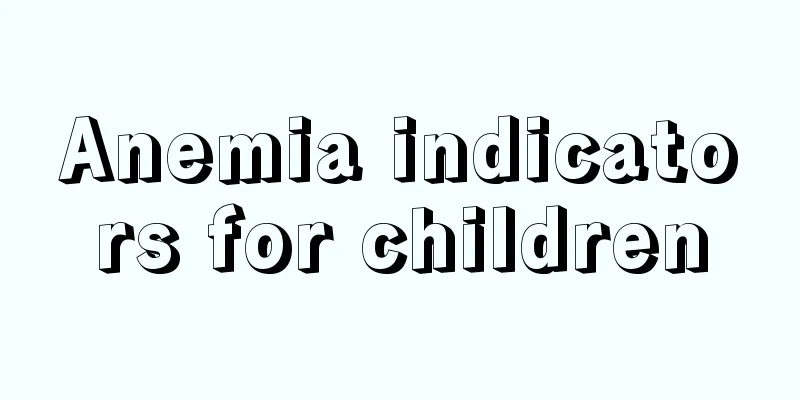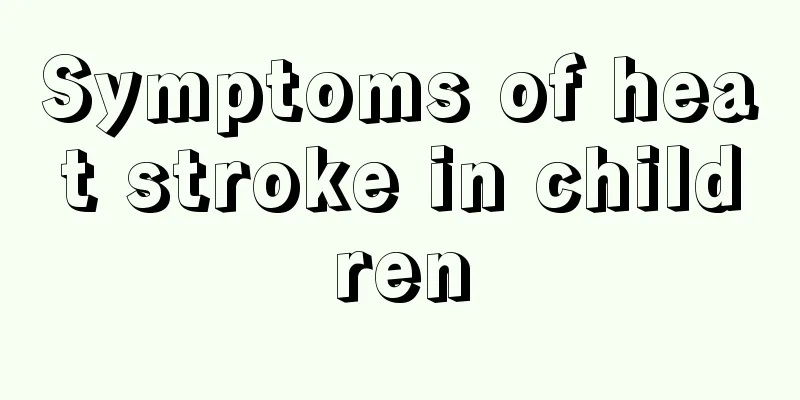What to do if Kawasaki disease recurs for the second time

|
Kawasaki disease is a common symptom among children. The course of this disease is generally divided into two types. That is, the acute attack period and the recovery period. During the acute attack period, Kawasaki disease can be treated with certain drugs. Immunoglobulin, aspirin, and corticosteroids all have certain therapeutic effects on Kawasaki disease. During the recovery period, anticoagulant therapy, thrombolytic therapy, coronary angioplasty, surgical treatment and other methods can be adopted. 1. Acute phase treatment: Take medication within 10 days after onset of the disease. Early oral aspirin can control the acute inflammatory process, and intravenous immunoglobulin plus oral aspirin treatment can reduce the incidence of coronary artery aneurysms in Kawasaki disease. 1. Immunoglobulin Administer 400 mg/kg of immunoglobulin intravenously every day, over 2 to 4 hours, for 4 consecutive days; at the same time, take 50 to 100 mg/kg of aspirin orally per day, divided into 3 to 4 times, for 4 consecutive days, and then reduce it to 5 mg/kg per day, taken all at once. 2. Aspirin The dosage is 30-100 mg/kg per day, divided into 3-4 times. After taking it for 14 days, reduce the dosage to 3-5 mg/kg per day, taken once, to achieve the anti-platelet aggregation effect. 3. Corticosteroids Prednisone and aspirin can be used in combination for treatment. Corticosteroids alone are generally not used to control the early inflammatory response of Kawasaki disease. Prednisone, oral, adults start with 15mg ~ 40mg / day, if needed, can be increased to 60mg / day, taken in divided doses, and gradually reduced after the condition stabilizes. The maintenance dose is 5mg~10mg/day. 2. Treatment during the recovery period 1. Anticoagulant therapy Take aspirin 3-5 mg/kg once a day until the erythrocyte sedimentation rate and platelet count return to normal. If there is no coronary artery abnormality, generally stop the drug 6-8 weeks after onset. Patients with residual chronic coronary artery disease need to take anticoagulants for a long time and be closely followed up. Patients with small single coronary artery aneurysms should take aspirin 3 to 5 mg/kg/d for a long time until the aneurysm disappears. For those who are intolerant to aspirin, 3 to 6 mg/kg of diphenylmethane can be taken daily, divided into 2 to 3 doses. Patients with giant tumors are prone to thrombosis, coronary artery stenosis or occlusion, and can use oral warfarin anticoagulants. 2. Thrombolytic therapy For patients with myocardial infarction and thrombosis, intravenous or percutaneous intracoronary puncture is used to administer the drug to promote coronary artery reopening and myocardial reperfusion. Intravenous thrombolysis: infuse urokinase 20000u/kg within 1 hour, followed by 3000-4000u/kg per hour. Infuse urokinase 1000u/kg within 1 hour of coronary artery administration. Streptokinase can also be used. 10,000 u/kg of streptokinase should be injected intravenously within 1 hour for thrombolysis, and it can be used again after half an hour. The above drugs can dissolve fibrin quickly, have good effects and no adverse reactions. 3. Coronary angioplasty In recent years, the use of balloon catheters to dilate coronary artery stenosis has been successful. 4. Surgical treatment Indications for coronary artery bypass grafting are: ① The left main trunk is highly occluded; ②Multiple branches are highly occluded; ③The left anterior descending branch is almost highly occluded. For cases of severe mitral regurgitation that are ineffective with medical treatment, valvuloplasty or valve replacement may be performed. |
<<: Why does a boy grind his teeth when sleeping?
>>: The first symptoms of a relapse of Kawasaki disease
Recommend
The child is twitching, rolling his eyes and having purple lips. This may be epilepsy.
Have you ever found your child twitching, rolling...
What to do if your child chokes on water while swimming
Nowadays, many parents let their children learn to...
What to do if children have a fever caused by tonsillitis
Tonsillitis is a common disease among children. W...
What to do if your child keeps vomiting
Why do children always vomit? Children's body...
Butyric Acid Cream for Babies
Eczema is a skin disease that infants and young c...
How to take care of a child’s red anus?
Many new mothers will find that their baby's ...
What to do if your baby is bitten by mosquitoes in summer
Mosquitoes are often rampant in summer, and both ...
How to deal with a child's continuous fever
I believe that many children will have symptoms o...
What should parents do if their children are depressed
According to relevant surveys, 2 out of every 100...
How to massage a baby when he coughs
Since babies have relatively weak resistance, it ...
What are the treatments for sinusitis in children?
Sinusitis is a very common nasal disease. Childre...
What causes hoarseness in children?
Children's health is a matter of concern to a...
What is the cause of the black spot in the child's eye?
The health of children can be said to be the main...
What are the Chinese patent medicines for strengthening the spleen and stomach in children?
Now that summer has arrived, many children like t...
What should I do if my baby has white eye mucus?
The baby's physical health is an issue that p...









